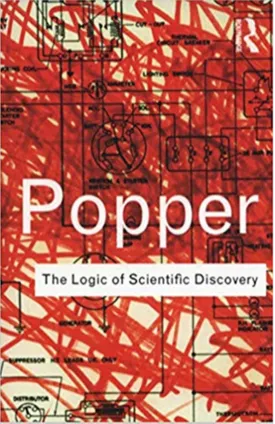Karl Popper
Karl Popper (1902-1994) is one of the most important philosophers of the twentieth century. He is best known for his contributions to the philosophy of science and political philosophy. He was a prolific writer, publishing numerous books and articles on various topics. Popper is particularly known for his philosophical views on the growth of scientific knowledge, as well as his defense of the open society and the rule of law.
Popper was born in Vienna, Austria in 1902. He attended the University of Vienna, where he studied physics, psychology, literature, and the philosophy of science. He received his Ph.D. in 1928. After obtaining his degree, he went to England and worked as a logical positivist in the Vienna Circle. There, he was exposed to the work of many philosophers, which would greatly influence his later work.
Popper was initially a follower of logical positivism, believing that science was the only legitimate source of knowledge. However, he had a growing dissatisfaction with the movement and eventually developed his philosophy of “falsification.” He argued that scientific theories should not be assumed to be true, but instead should be constantly tested against the evidence.
He further argued that scientific progress was incremental. He believed that hypotheses could never be proven absolutely, but that they could be disproved and replaced by better ones. He argued for an open society, one which is tolerant of dissent and allows for creative freedom. This philosophy was developed in his book The Open Society and Its Enemies, a provocative critique of totalitarianism and moral relativism.
In addition to his contributions to the philosophy of science, Popper was also a noted political theorist. He argued that all governments should support the rule of law and protect individual rights. He believed that democracy was the best system of government, and argued against one-party rule and authoritarianism. Further, Popper was critical of the prevailing justification of violence in the name of justice and argued instead for a peaceful means of social reform.
One of Popper’s greatest books was The Poverty of Historicism, which provided a criticism of predicting the course of history. Popper argued that attempting to predict the future based on past events and trends was futile, and he attacked the notion that societies could move toward any predetermined goal. He also argued against the idea of progress as inevitable, seeing the progress of mankind instead as uncertain and unpredictable.
In all, Karl Popper was a major thinker whose views continue to shape our understanding of science and society. Through his powerful critique, he helped open new paths in philosophy and political theory, demonstrating the importance of open, rational discussion in making progress. His works, most notably The Open Society and Its Enemies, set a standard for rigorous and thoughtful dialogue that still resonates today.

